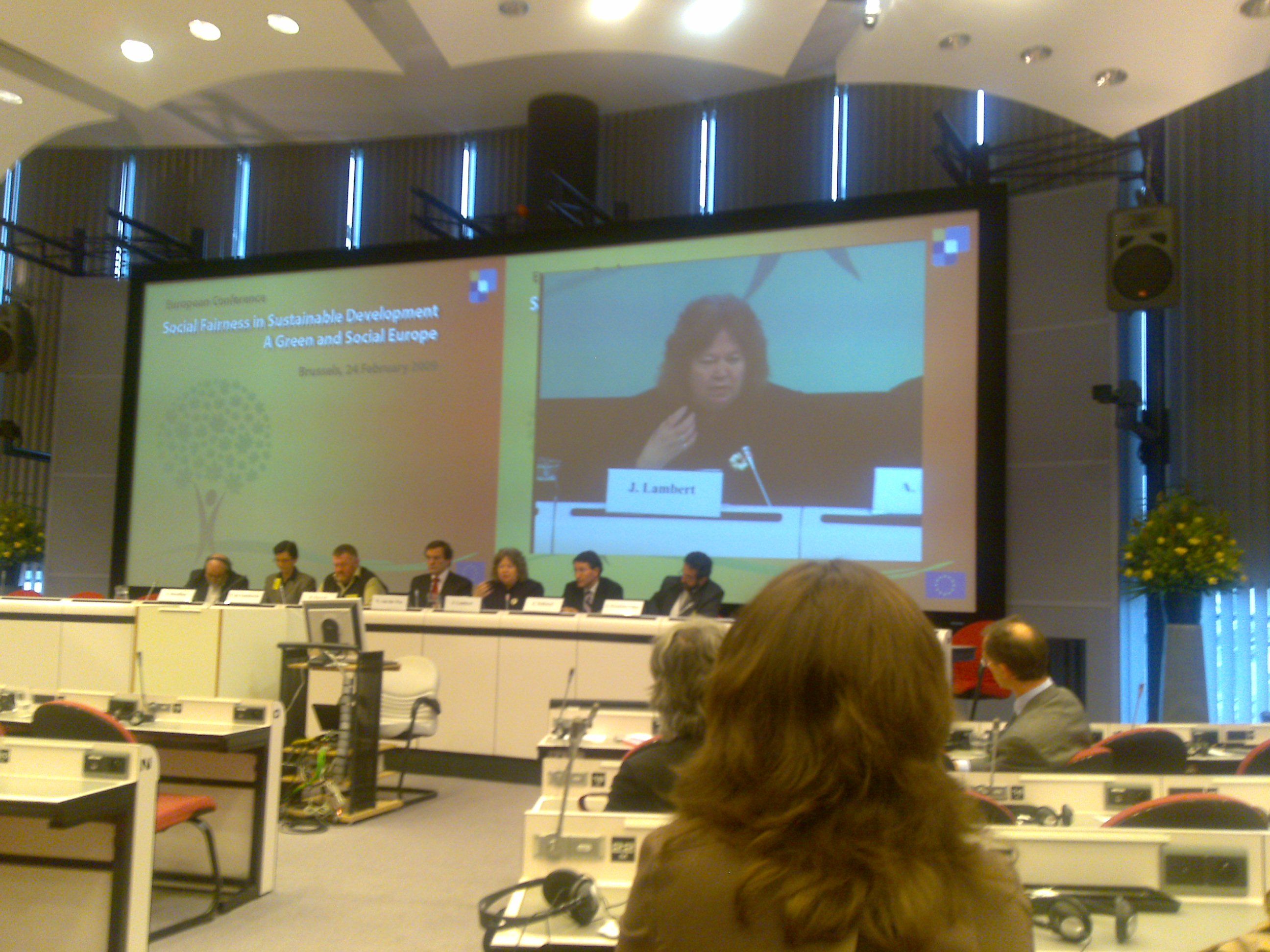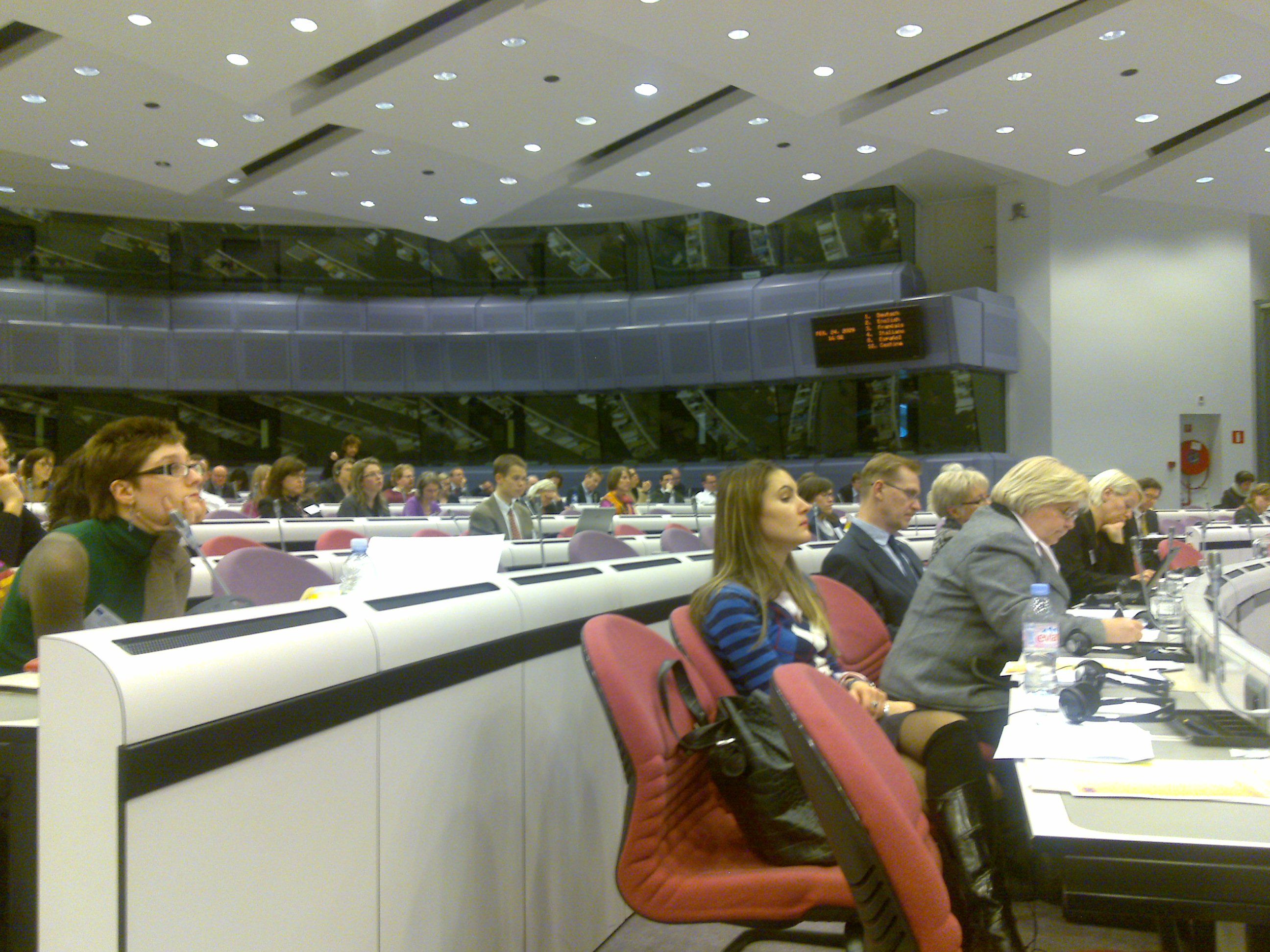
There are many practical possibilities for moving towards a more sustainable consumption and production while promoting social cohesion. Closing breaches, energy/saving light bulbs, reflecting foil, water/saving showerheads, improvement in insulation and heating systems. Developing synergies between sustainable development, social cohesion and an important monitoring tool: SDI (Sustainable Development Indicator) is needed.
The conference Social Fairness in Sustainable Development - A Green and Social Europe 24-02-09 provided a complementary view on sustainable development and employment creation.

